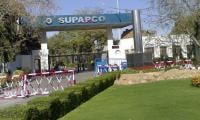LAHORE: Pakistani entrepreneurs, who have invested in the textile sector of Bangladesh, are worried as the recent turmoil and unrest in that country has created similar uncertainty that exists in Pakistan. A martial law in Bangladesh might result in instability.
Several Pakistani textile entrepreneurs had relocated their operations to Bangladesh in the past. The trend had been driven by various factors, including lower production costs, preferential trade agreements, and better infrastructure in Bangladesh.
Bangladesh is the second largest exporter of apparel in the world after China and is regularly encroaching on the Chinese share, which has been slapped with sanctions by western nations. Most of them have established their operations in recent years in special export processing zones of Bangladesh. Entrepreneurs from more than a dozen Pakistani textile industries, particularly in the home textiles and readymade garment sectors, have moved their units to Bangladesh to reduce production costs by nearly 50 per cent.
Soorty Enterprises has invested $35 million to set up a garment factory in Bangladesh, employing around 6,000 Bangladeshis. Other notable names include, Interloop Limited, Pak Denim Limited, Crescent Textile Mills, Gul Ahmed Textile Mills, Kohinoor Textile Mills, Al-Karam Textile Mills, Nishat Mills Limited (Part of the Nishat Group), Artistic Milliners and Masood Textile Mills.
These entrepreneurs and companies have moved or expanded their operations to Bangladesh due to lower production costs, better market access, and favourable economic policies. The relocation was influenced by Bangladesh's strategic advantages, such as cheap labour costs and favourable trade agreements with the European Union and the United States, which grant Bangladesh better market access and lower tariffs compared to Pakistan. (Pakistan was also granted GSP + status by the European Union in 2013). These incentives have made Bangladesh an attractive destination for Pakistani textile firms looking to maximise profits and expand their market reach.
Textile leader Balwani told The News that though some notable names like Soorty and Interloop are operating from Bangladesh, generally they were not welcome during the long tenure of Hasina Wajid. He said the recent uprising in Bangladesh was against the rule and policies of Hasina Wajid that were pro-India. He hoped that the new military government would respect the anti-Indian sentiments in Bangladesh that might encourage Pakistanis to invest more in that country.
MI Khurram, a leading knitwear and yarn exporter, said at the current power and energy rates, it would not be possible for the Pakistani textile mills to operate from Pakistan. He said if goodwill for Pakistan increases in Bangladesh after the military takeover, most mills would prefer to relocate their industries there.
Pakistanis have earlier relocated many small textile units in Bangladesh 15 years back. But the Bangladeshi public opinion and government were more favourable to Indians and most of the smaller entrepreneurs had to come back. The larger enterprises went to Bangladesh with better planning and invested in export processing zones only. Still the cumulative investment of all Pakistani textile entrepreneurs is much lower than the exports and investments of top 10 local textile groups of Bangladesh.
PKI urges govt to take action against Akhtar Mengal, Mahrang, and their associates to eliminate anti-national elements
Barrister Saif reaffirms that his top priority was economic development and political stability of country
Critics accuse Norway's Partiet Sentrum party of "using a possible Peace Prize nomination to win votes"
Minister acknowledges efforts of Chaudhry Shujaat Hussain in maintaining peace in Balochistan
Waqas describes PM Shehbaz’s three-year tenure as one of darkest periods in country’s history
HED asked to ensure that all universities under its jurisdiction take necessary actions to prevent harassment







